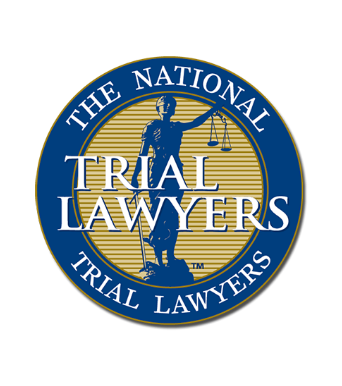Anne Arundel County Wrongful Death Attorneys
When someone you care about has passed away, a lawsuit is last on your mind. However, if a loved one has suffered a wrongful death, you may be entitled to compensation.
A wrongful death occurs when someone passes away because of another person’s wrongful or illegal actions. Some commonly claimed reasons for wrongful death cases include accidents, medical malpractice, and nursing home abuse, although there are many others. Only certain family members may file wrongful death cases, and some family members are given priority over others. Damages in these kinds of situations tend to be complex. Not only are there damages related to the deceased person’s passing, but we also must consider losses experienced by surviving families in addition to pain and suffering. Damages can be quite considerable, but damage caps limit the compensation a plaintiff might receive.
Call (410) 694-7291 to schedule a case assessment free of charge with our wrongful death attorneys at Rice, Murtha & Psoras.
What Constitutes a Wrongful Death in Anne Arundel County?
A wrongful death action is a claim brought by the relatives of someone who passed away because of another’s wrongful actions. A wrongful act that causes death might be an act of negligence where the wrongdoer did not intend to hurt anyone. In other cases, the defendant intended to cause harm, and they might also face criminal charges. Wrongful death is a statutory claim that is governed by Md. Code Ann., Cts. & Jud. Proc. Art. § 3-904. Several elements must be proven for the claim to succeed.
First, the victim must have suffered fatal injuries and passed away. Second, the death must have been caused by a wrongful act, often the defendant’s negligence. Third, the victim’s death must have resulted in injury to the family member suing. In this context, an injury does not refer to physical injury. The injury might include economic injuries like medical bills and pain and suffering.
Finally, the wrongful death lawsuit must be brought within the statute of limitations, a deadline to file the lawsuit. In Maryland, the statute of limitations for a wrongful death claim is generally three years. Some factors specific to your case may affect the statute of limitations, but our wrongful death attorneys can identify any issues and file your complaint on time.
Causes of Wrongful Death in Anne Arundel County
Wrongful death claims could arise from negligence or malicious acts of intentional harm. How your loved one passed away is a huge component of your case that you must discuss with your attorney. Below are some commonly claimed reasons behind wrongful death claims our team has handled previously.
Accidents
Accidents in general are a major cause of many wrongful deaths. Auto accidents are arguably one of the most commonly cited reasons, although many other accidents could lead to wrongful death. Accidents at work, on construction sites, or from defective products could lead to a wrongful death claim.
Accidents go hand in hand with negligence. Negligence comprises four legal elements, and all four must be proven. We need to show that the defendant owed your deceased loved one a legal duty of care, the defendant violated their duty of care, the breach was the direct cause of your loved one’s death, and your damages are real and not just unrealized possibilities.
Medical Malpractice
Medical malpractice claims are often connected with wrongful deaths related to negligent medical care. Medical malpractice does not always involve a patient passing away, but the family may file a wrongful death claim if it does.
Medical malpractice also involves proving negligence, but it is a different kind of negligence than that mentioned above. In medical malpractice cases, we need to prove that the defendant’s medical treatment of your loved one fell below the standards of medical care. What this means for your cases depends on what your loved one was being treated for and their treatment needs.
Additionally, there are some hoops to jump through for medical malpractice claims that are not present in other cases. For example, we will need to submit a certificate from a qualified expert affirming that the treatment of your loved one fell below the standards of care.
Nursing Home Abuse
Nursing home abuse can be difficult to prove for several reasons. First, people in nursing homes tend to be older, and nursing home residents pass away frequently. If your loved one passed away while living in a nursing home, their passing might not be regarded as suspicious, at least not right away. Second, nursing home patients are often in infirm health and have difficulty reporting abuse on their own. In many cases, abuse is not discovered until after a nursing home patient passes away.
If your loved one passed away while living in a nursing home, an attorney can help you think back and try to look for any possible signs of abuse. Unexplained injuries or marks, changes in demeanor, and declines in overall health might be signs that abuse was happening before your loved one passed.
Who is Allowed to File a Wrongful Death Claim in Anne Arundel County?
The Maryland wrongful death statute deals with two levels of beneficiaries that can file a complaint. These are commonly called primary and secondary beneficiaries. The key difference is closeness to the deceased.
A primary beneficiary can file a wrongful death suit on behalf of themselves for the damages they have suffered. Only a spouse, child, or parent is considered a primary beneficiary. A secondary beneficiary can file a lawsuit only if a primary beneficiary does not exist. A secondary beneficiary must be related to the victim through marriage or blood and be “substantially dependent” on the deceased person. A sibling, niece, nephew, cousin, or other relatives who lived with the deceased or were financially dependent on them could be considered a secondary beneficiary.
Damages Available in Anne Arundel County Wrongful Death Lawsuits
Damages in wrongful death lawsuits are complex and multidimensional. First, we have to take into consideration damages related to your loved one’s death and the pain and suffering they might have experienced. Next, we must consider your and your family’s losses related to your loved one’s passing.
Lost Wages
Lost wages are a significant source of damages in wrongful death claims. If the deceased person were the primary income earner in your household, their lost income would take a significant financial toll on your family. For example, a person might rely on their spouse’s income to support them and their family. If that spouse passes away because of a wrongful act, the surviving spouse should sue for the lost income.
In addition, you can sue for lost financial support even if you did not live with the deceased person. For example, suppose the deceased person sends you money each month to pay for necessities because you are ill and cannot work. This is not an uncommon arrangement among family members. Next, suppose that when your loved one passes away, you are left without any way to support yourself because their financial assistance is gone. In that case, you can sue for the lost financial support.
Medical Bills
Wrongful death claims commonly involve high medical costs. After a person is gravely injured, they are usually rushed to the nearest hospital for treatment. In a wrongful death case where injuries are likely catastrophic, the medical costs can be astronomical. In your damages, you can claim the costs of medical care for your deceased loved one before they pass away. This can include ambulance rides, emergency surgery, x-rays and scans, lab testing, and other treatments.
Funeral and Burial Costs
After your loved one passed away, you likely had to cover the costs of a funeral and burial expenses. In today’s economy, funeral and burial expenses are known to be significant. In your wrongful death claim, you can claim these costs as part of your damages. The costs of caskets, burial plots, cremation, funeral services, and memorials may be factored into your damages. It is important to keep thorough records of burial and funeral expenses so that you get all the compensation your family deserves.
Pain and Suffering
Under the law, your damages are not limited to economic or financial losses. You can also claim non-economic damages related to your family’s pain and suffering after losing your loved one. Your damages may account for mental anguish, pain, and suffering. Additionally, you can claim the loss of comfort, society, companionship, marital or parental care, protection, advice, counsel, education, or guidance. The nature of your relationship with the deceased person may influence the non-economic damages in your case.
Caps on Non-Economic Damages in Anne Arundel County Wrongful Death Lawsuits
A key difference between economic and non-economic damages is the cap that applies to non-economic damages. When the accident occurred, the number of beneficiaries and whether the cause of death was medical malpractice influence the total amount of non-economic damages available to you in your wrongful death claim.
Maryland’s Rising Damage Maximums
When determining the cap on non-economic damages, the first factor is the date that the cause of action arises. Usually, the cause of action arises when the death occurs or when the actions leading to the death occur. Maryland has set different damage maximums for each calendar year, so a cause of action arising in 2021 would have a different damage cap than a cause of action arising in 2023.
Under the law, the cap on non-economic damages will increase by $15,000 each year on January 1st. In 2008, the cap on non-economic damages was set at $650,000, and on January 1, 2009, the cap was increased to 665,000. If your loved one passed away more recently, the cap on non-economic damages in your case might be considerably greater. As of 2023, the cap on non-economic damages should be about $875,000.
Caps for Multiple Beneficiaries
The number of beneficiaries also affects the cap for non-economic damages. If there are two or more beneficiaries to a wrongful death claim, a higher cap will apply than for a single beneficiary. This is because multiple beneficiaries will have to share the damages. There is also a joint cap for wrongful death and survival actions, which are frequently filed together for a single accident.
If a wrongful death case involves two or more beneficiaries, the cap on non-economic damages may not be more than 125% of the limitation discussed previously. As such, the value of non-economic damages claims can be very high.
If Your Loved One Died in an Accident, Call Our Anne Arundel County Wrongful Death Attorneys Today
To schedule a free case assessment with our wrongful death attorneys at Rice, Murtha & Psoras, call us today at (301) 381-5481.













